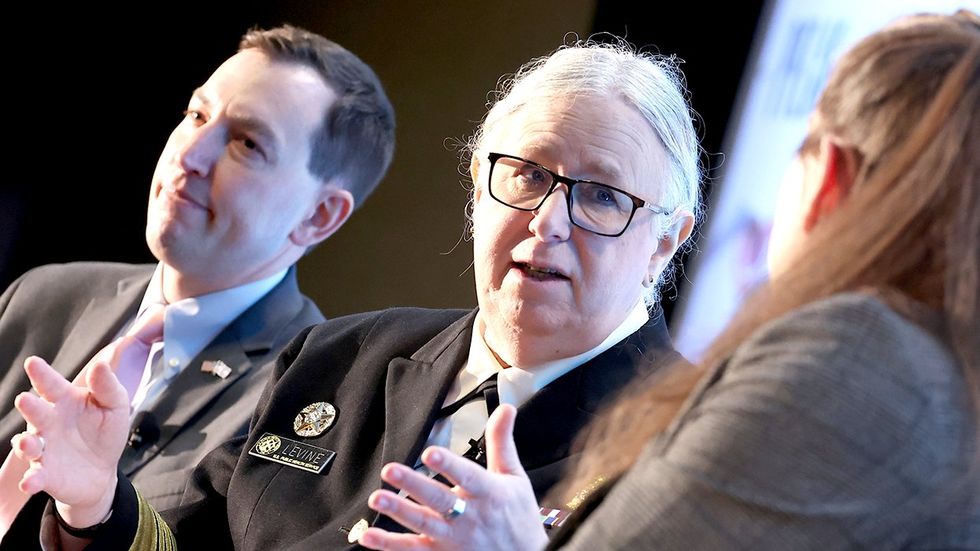Assistant Secretary for Health Admiral Rachel Levine, M.D., the first transgender executive branch official confirmed by the U.S. Senate, is warning people about misinformation, transgender medicine, and the alarming emergence of what she termed “medical refugees” in the United States. She recently spoke with The Advocate about what she means and the concerns she has.
Levine’s background as a trained pediatrician adds a crucial layer of understanding to these pressing health care topics.
The conversation came after Levine participated in a panel discussion alongside the president of the American Medical Association, Dr. Jesse Ehrenfeld, hosted by transgender writer and advocate Charlotte Clymer at PFLAG’s National Convention in Arlington, Va., on Saturday.
A striking highlight of the discussion was the concept of “medical refugees.” Levine delved into the stark reality facing individuals who have to cross state or regional borders to access vital health care services.
“[Republican legislatures] have created medical refugees who have to leave their state or even their region to get abortion services or to leave their state and region to get transgender medical services. And that really is a health equity issue because some people have the ability and the means to be able to fly to Illinois to get an abortion or to get transgender care, medical care. And many people, they can’t do that. They can’t get on a plane or get into a car and drive a thousand miles,” Levine said.
Her words underscore a significant challenge and reflect a grim landscape of health care accessibility nationwide.
Tackling the pervasive issue of misinformation, Levine explained, “Battling disinformation and misinformation is critically important for public health in general right now.”
She urged people to have a “reflective evaluation of the sources they’re getting their information from so that they can make their decisions.”
Levine clarified common misconceptions when the conversation steered toward gender-affirming care for minors.
“There’s no medical care, medical treatment for pre-pubertal children. The medical care starts right after puberty starts,” she said, noting that this is the earliest age at which patients can discuss accessing puberty blockers with their physicians.
Related: Americans Don’t Want Politicians Focusing on Transgender Issues, Survey Finds
Experts in pediatric gender-affirming care consistently explain that before a minor enters puberty, the treatment protocol for kids who are transgender is social support and counseling.
Once a young person reaches puberty, medical interventions can be considered after lengthy consultations with doctors, counselors, parents, and the patient.
Levine strongly criticized restrictive laws.
“We do not want the state legislators and governors to get in between the relationship between a young person and their family and their medical providers, who [are] providing evidence-based care according to well-established standards,” she said.
Levine also touched on the erosion of trust in experts, exacerbated by the COVID-19 pandemic. She is concerned about manipulating this distrust for political gains.
“I think that with the trauma of the COVID-19 pandemic, there has been an erosion of trusted messengers and experts,” Levine said. “I think that is being manipulated for political and ideological purposes.”
She accentuated the collective effort needed to rebuild public trust, highlighting her outreach initiatives across various states to provide accurate medical and public health information.
She outlined her efforts, saying, “I’ve been to California, and I’ve been to Massachusetts, and I’ve been to Washington; I’ve been to Texas, and I have been to Florida, and I’ve been to Missouri, and I’ve been to Oklahoma, and I’ve been to South Dakota, and we’re going to Georgia and many other places to speak out and to give accurate medical information, accurate public health information.”
Expressing a resilient sense of optimism, Levine lauded the inclusivity demonstrated by the Biden-Harris administration and the emerging coalitions among various civil rights groups.
“I think we fight hate with love, and I think that the wheel will turn, and then we will be successful,” she said.



















































































